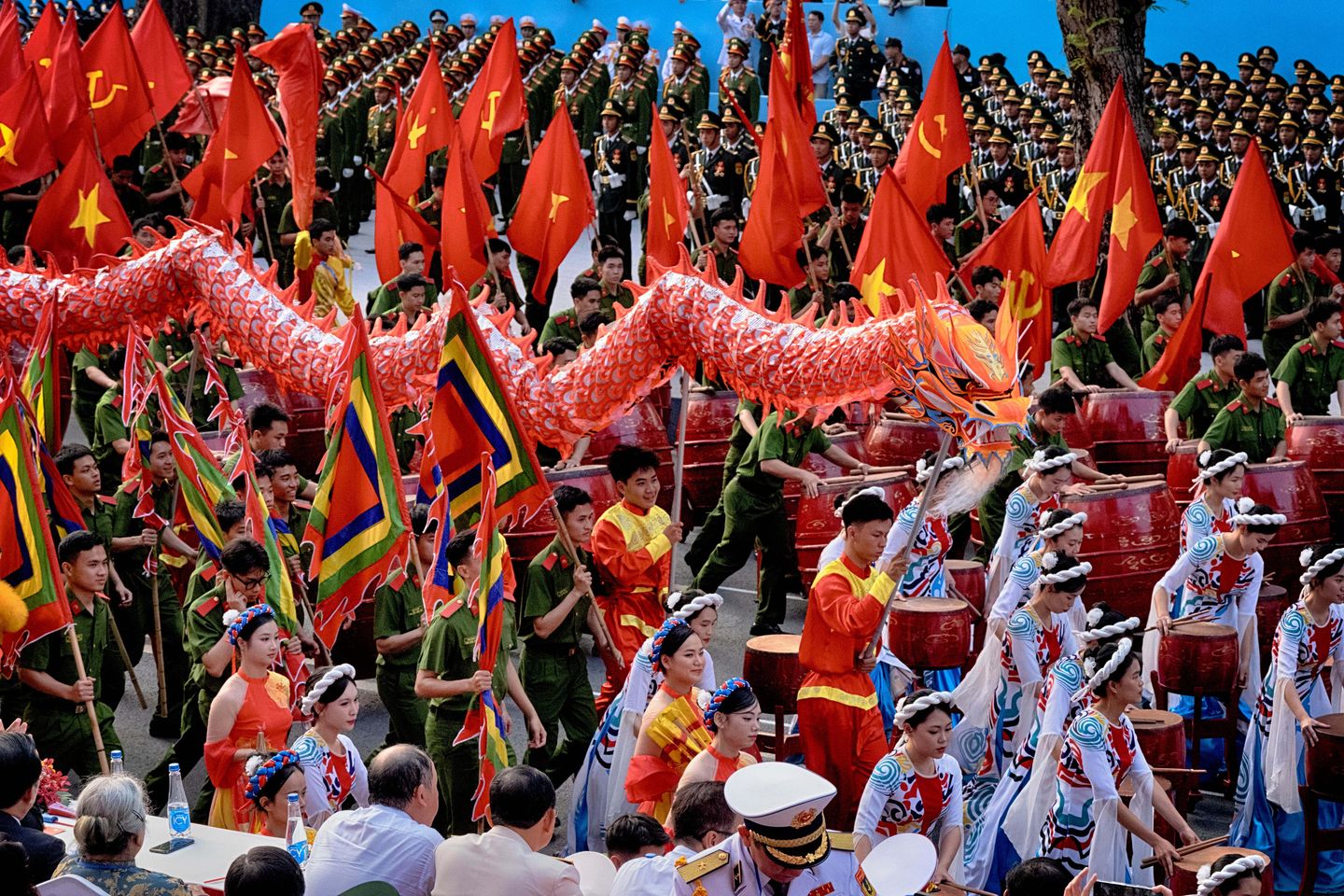
Vietnam marked the 50th anniversary of national unification Wednesday with a military parade through Ho Chi Minh City, formerly Saigon, which fell to North Vietnamese forces on April 30, 1975. Thousands of citizens celebrated with flags and patriotic songs, commemorating the creation of a unified communist state.
The Vietnam War remains America’s most divisive modern conflict. From 1965 to 1973, U.S. forces suffered 58,000 casualties while fighting to preserve South Vietnam’s independence. Despite overwhelming military power, they failed to defeat the determined North Vietnamese army and Viet Cong guerrillas.
American journalist Don Kirk, who covered the war and attended the anniversary as a guest of Vietnam’s Press Bureau, noted Hanoi’s emphasis on national unity through prominent displays of Viet Cong flags, despite the fact that Saigon fell to North’s regular troops. “That tells me Hanoi has a message of unity, they are trying to keep the south from feeling left out or restive,” Kirk observed.
The conflict’s legacy extends far beyond Vietnam’s borders. For America, the war shattered public confidence in military interventions. Television brought disturbing images of war into American homes — burning villages, napalm victims, and atrocities — fueling antiwar sentiment. Military historian Gastone Breccia noted, “For the first time in history, the Yanks were definitely the bad boys.”
Since Vietnam, U.S. forces have succeeded in short conflicts but struggled with prolonged insurgencies in Iraq and Afghanistan, forgetting counterinsurgency lessons painfully learned in Vietnam. As retired Col. David Maxwell explained, most military branches “purged most of the doctrine in counterinsurgency because the military believed it would never conduct such a war as Vietnam again.”
For Vietnam’s neighbors, the war’s aftermath brought further conflict. Vietnam invaded Cambodia in 1978 to remove the Khmer Rouge and fought a brief border war with China in 1979. Territorial disputes with China in the South China Sea continue today.
Modern Vietnam has transformed itself despite these difficult decades. Though still communist politically, it has embraced controlled capitalism, integrated into global supply chains and rebuilt relations with former enemies. Western tourists now visit war sites such as the “Hanoi Hilton” prison and Cu Chi tunnels.
Mr. Kirk, impressed by Vietnam’s resilience, reflected: “It’s amazing how Vietnam has recovered. How and why did we spend so much time here — and what could we have done differently to have ended mass suffering on all sides?”
Read more: Vietnam celebrates 50th anniversary of national unification, capture of Saigon
This article is written with the assistance of generative artificial intelligence based solely on Washington Times original reporting and wire services. For more information, please read our AI policy or contact Ann Wog, Managing Editor for Digital, at awog@washingtontimes.com
The Washington Times AI Ethics Newsroom Committee can be reached at aispotlight@washingtontimes.com.












